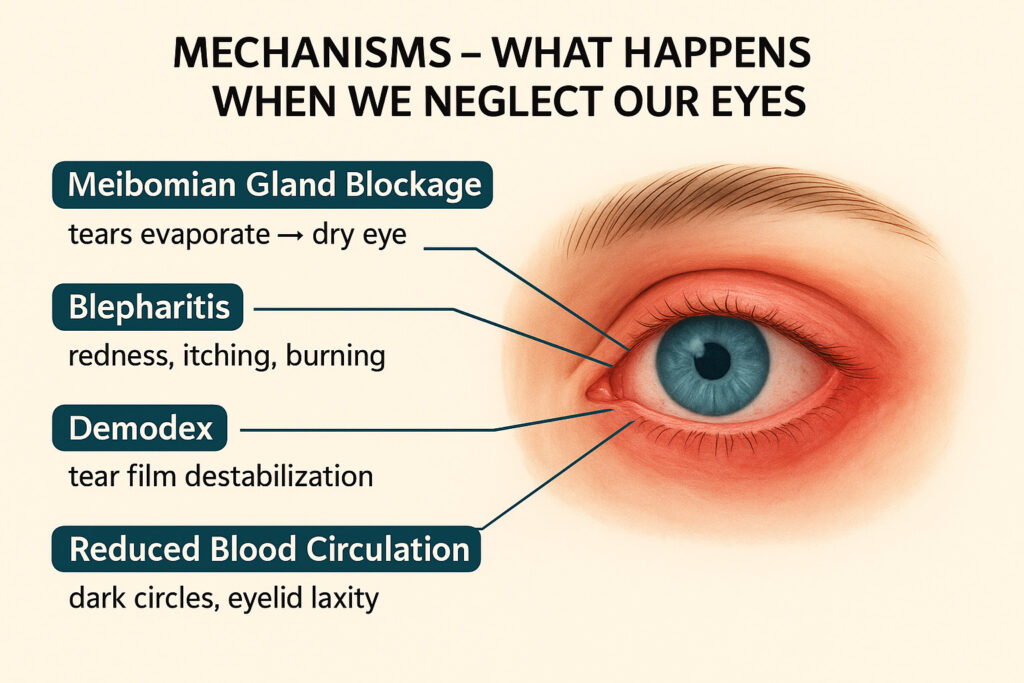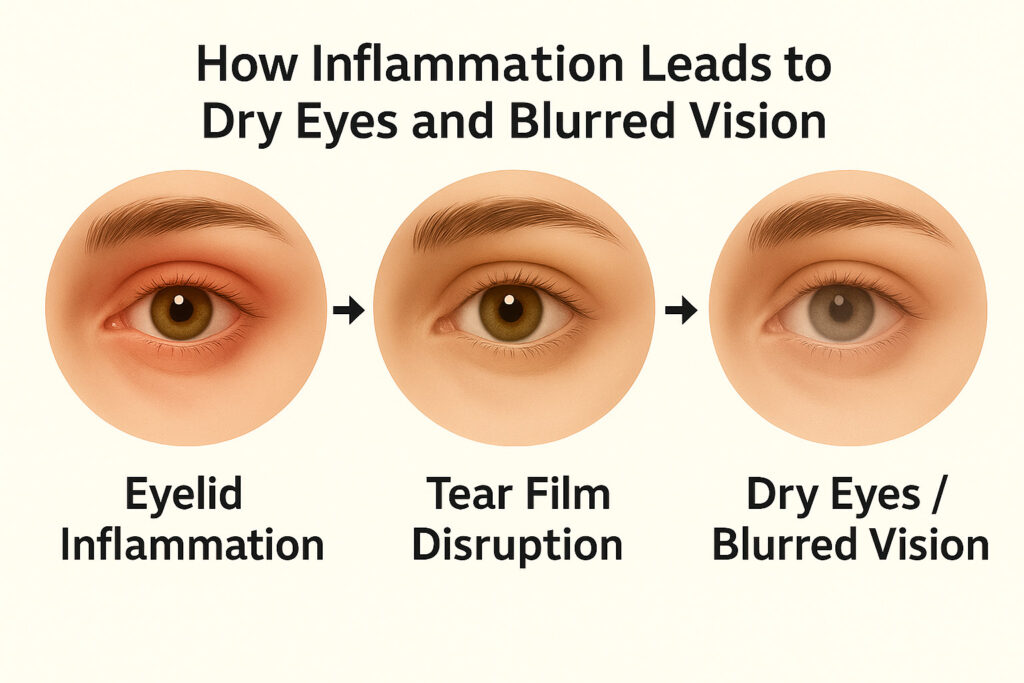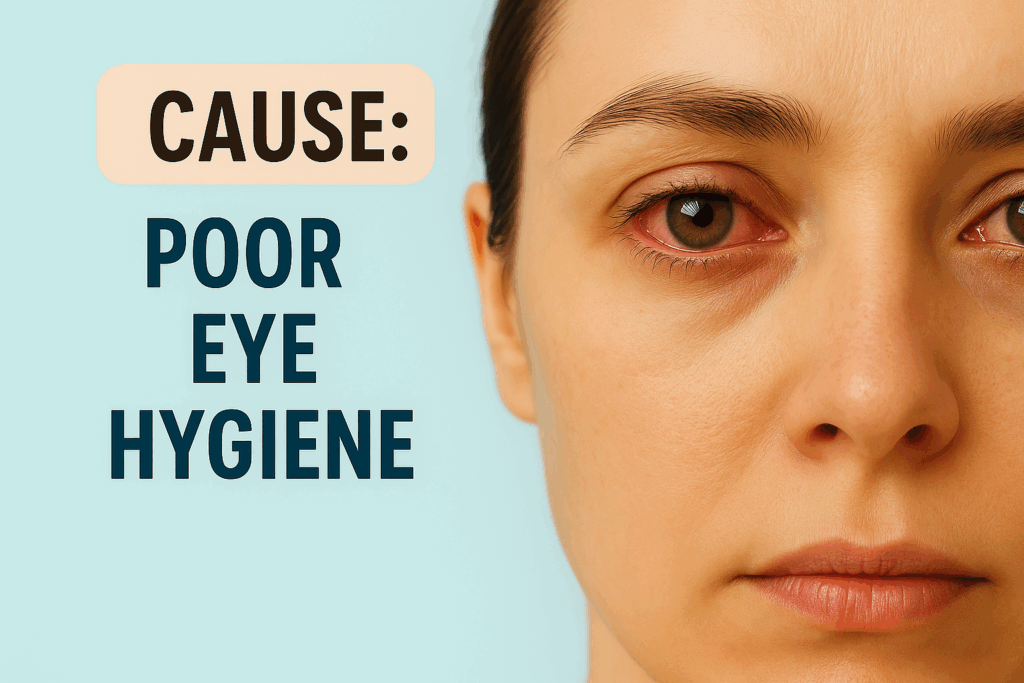Η ΥΓΙΕΙΝΗ ΤΩΝ ΒΛΕΦΑΡΩΝ ΕΙΝΑΙ ΠΟΛΙΤΙΣΜΟΣ
CONCEIVED IN GREECE
Η ΥΓΙΕΙΝΗ ΤΩΝ ΒΛΕΦΑΡΩΝ ΕΙΝΑΙ ΠΟΛΙΤΙΣΜΟΣ
CONCEIVED IN GREECE
From Hippocrates to Dermophthalmology
Hippocrates, the father of Medicine, was the first to speak 2,500 years ago about the importance of Hygiene as the foundation of health.


2500 years ago
Hippocrates first spoke of Hygiene as the cornerstone of health.
Today, Greece introduces Dermophthalmology to the world: eye care as a culture, as prevention, as respect for humanity.
Eye Hygiene is Culture.
It is not a luxury, it is basic care. Just as our body needs daily hygiene, our eyes deserve cleanliness, protection and respect.
Dermophthalmology establishes a new culture: the cultivation of health and beauty in the gaze.
Dermophthalmology continues this work, introducing Eye Hygiene as a new cultural and medical paradigm — bringing eye care to the forefront.
Taking care of the eyelids, eyelashes, eyebrows and ocular surface is not a luxury.
It's culture. It's health. It's prevention.
What is Dermophthalmology?
From Hippocrates to modern prevention – eye hygiene becomes a culture.
Dermophthalmology is a new sub-specialty of Ophthalmology, which, in collaboration with Dermatology, focuses on the care of the eye, eyelids, eyelashes, eyebrows and the peri-ocular area – all elements that have a direct impact on the ocular surface, quality of vision and appearance.
This is not just another aesthetic trend. It is a medical innovation with a Greek signature, which brings eye care to the center of daily hygiene.

All of these affect
The ocular surface, quality of vision and appearance.

Why Now is the Time
The digital lifestyle, long-term use of screens, makeup, contact lenses, air pollution and oxidative stress are constantly increasing the incidence of:
- Dry eyes
- Blepharitis
- Chalazion
- Blurred vision
- Dark circles
- Problematic or dysfunctional eyelashes
- Sensitivity to light
- Irritation from makeup & extensions

Do you recognize these symptoms?
- Blurred vision
- Tearing
- Stinging or itching
- Red eyes
- Foreign body sensation
- Irritated eyelids
- Weak or dysfunctional eyelashes

«When Ophthalmology & Dermatology collaborate, society wins»
Dermophthalmology does not remove responsibilities from any specialty; on the contrary, it creates a new field of collaboration.
Ophthalmology has developed impressively on a surgical and technological level, but the time has come for the field of daily prevention and eye hygiene to also come to the forefront.
Dermatologists know better than any other specialty the importance of hygiene and microbial balance in the skin. Their involvement is critical, as conditions such as rosacea, seborrheic dermatitis, and psoriasis often have ocular involvement.
In this way, Greece – continuing the Hippocratic tradition of prevention – introduces to the world the new self-evident: eye hygiene as an integral part of health and culture.

Eyes in Numbers.
people are affected by dry eye & blepharitis
of information passes through the eyes
list dark circles as the #1 cosmetic problem
Ophthalmogen is the first DermOphthalmological line
Eye Hygiene is Culture – The Idea That Changes Our Eyes and Our Lives
Dermophthalmology is not a fad. It is the continuation of the Hippocratic tradition of prevention.
Just as we learned to take care of our teeth, we are now learning to take care of our eyes.
Eye care means prevention, culture and a better quality of life.
The Importance of Eyes
80% of the information we receive from the world passes through the eyes
Frequency of problems
1 in 2 over 50 years old has dry eye or blepharitis. 50% of the general population has meibomian gland dysfunction (MGD). After cataract surgery 70-80% already have dry eye - blepharitis
The Aesthetic Dimension
1) 70% consider the area around the eyes to be the #1 indicator of youth. 2) Dark circles are a common aesthetic complaint in 40%-50% of people.
The role of Demodex
It is found in 50-60% of adults In those over 70 years old, 80-90% have demodex which affects eyelashes & eyelids.
The New Era
Ophthalmology has developed impressively in surgical and technological terms. It is time for the field of daily prevention and hygiene to transform lives.
The 6 Stages of Dermato-Ophthalmological Hygiene

Eyelid Thermotherapy
20 Minute Self-Heating Compress

Eyelid Gel
Massage 30 seconds on each eyelid

Eyelid - Eyelash Spray
Using strengthening spray

Meibomian Gland Evacuation
Medical procedure by an ophthalmologist for healthy glands

Eyelid Cleaning
With Special Foam and Wipes

Ocular Surface Hydration
With Eye Drops and Spray
WOD
World Organization of Dermophthalmology
The World Organization of Dermophthalmology (WOD) is the first global scientific association dedicated to Dermophthalmology.
Its goal is to unite Ophthalmologists and Dermatologists, promoting prevention, daily hygiene and aesthetic eye care.
Its establishment and development are already underway, with the participation of scientists and organizations from Greece and abroad.
Through research, education and international collaborations, WOD brings Dermophthalmology to the forefront, improving the quality of vision, health and beauty of the gaze.

From Science to Practice – Ophthalmogen
Dermophthalmology is not theory - it is daily care.
Ophthalmogen is the first global line created based on the principles of Dermo-Ophthalmology, offering comprehensive protocols for daily eye hygiene.
Ophthalmogen is recommended by ophthalmologists and dermatologists as the 1st Dermophthalmology line in the world.
Latest articles
Read the latest news about Dermo-Ophthalmology
- What is Dermo-Ophthalmology?
- From Oral Hygiene to Dermo-Ophthalmology
- Pilocarpine & Dermo-Ophthalmology: How they "collaborate" for clear, comfortable vision
- OPHTHALMOGEN – The First Dermo-Ophthalmology Series in the World
- DERMOPHTHALMOLOGY. When the cause of irritated eyes is not in the eyes but in the eyelids and eyelashes
Our Vision
From Hippocrates to today, prevention is the foundation of health.
Dermophthalmology continues this tradition and suggests the obvious:
Eye Hygiene is Culture.
It is not a luxury, it is basic care. Just as our body needs daily hygiene, our eyes deserve cleanliness, protection and respect.
Dermophthalmology establishes a new culture: the cultivation of health and beauty in the eyes.


















